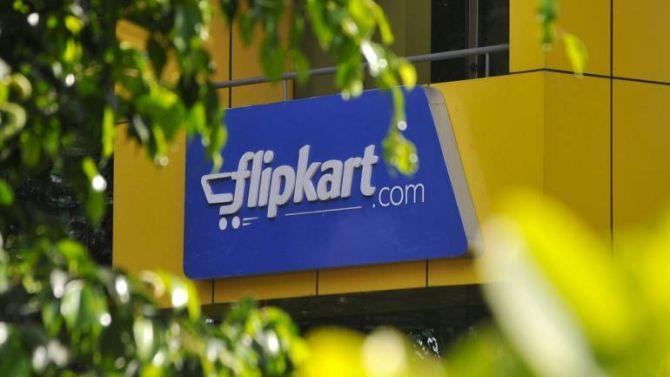Flipkart, the e-commerce company owned by Walmart, is intensifying its efforts to achieve profitability as it is eyeing a valuation of approximately $60 billion at the time of its initial public offering (IPO), now planned in 2025-2026, instead of this year, according to people familiar with the matter.

The firm might consider listing in the US or any other geography, including India.
The company, which counts the likes of Amazon and Reliance’s JioMart among its competitors in India’s burgeoning e-commerce market, had also contemplated launching an IPO in 2022-2023.
However, it had to postpone the plan due to financial considerations and macroeconomic uncertainty.
“For its IPO, the company is fast-tracking its efforts to ensure that it becomes profitable and it is inching towards that,” said a person familiar with Flipkart’s IPO strategy.
“The firm has significantly improved its Ebitda (earnings before interest, taxes, depreciation, and amortisation).”
An email query to Flipkart remained unanswered.
Flipkart Internet, the marketplace arm of the e-commerce giant, recently reported a 42 per cent growth in operating revenue for FY23 at Rs 14,845 crore.
Its total loss declined by 9 per cent to Rs 4,026 crore, according to data accessed by business intelligence platform Tofler.
Total expenses grew by 26 per cent to Rs 19,043 crore in FY23.
Employee benefit expense was Rs 4,482 crore, an increase from Rs 3,735 crore in the previous period.
The firm spent Rs 6,571 crore on logistics in FY23, a 30 per cent increase compared to the previous period.
Advertising and promotional expenses increased to Rs 2,407 crore from Rs 1,945 crore.
The Bengaluru-based firm had made Rs 10,477 crore in operating revenue in FY22 and witnessed a total loss of Rs 4,419 crore.
According to the data from Tofler, Flipkart’s earnings from offering logistical services grew by 50 per cent to Rs 5,789 crore in FY23.
It earned another Rs 3,713 crore from offering marketplace services in FY23 -- a 32 per cent increase compared to FY22.
Advertising revenue was at Rs 3,324 crore in FY23, an increase from Rs 2,083 crore in the previous period.
“Flipkart needs to show profitability before it goes for an IPO, it is still bleeding heavily,” said a person familiar with the matter.
“You might see them scaling down some unprofitable divisions.
"Every year they require $1 billion (funding) to make up for the losses.”
An industry executive noted that there was a series of IPOs of loss-making startups in 2021 as the market was hot.
"“But the public market was not kind to them; that is why companies want to achieve profitability.”
In addition to focusing on profitability, the company has been implementing various processes to make it IPO-ready.
This includes creating an effective system of corporate governance, improving key finance operations and functions, and trimming down its workforce.
“The company has been conducting a regular exercise of trimming its workforce based on performance by about 5-7 per cent as part of the strategy to make the organisation leaner and efficient,” said a person in the know.
The company has a workforce of about 22,000 currently. In September last year, Flipkart appointed Microsoft executive Keshav S Dhakad as senior vice-president and general counsel for the Flipkart group to head all legal-related matters.
Industry sources said Flipkart is in talks with investors to raise a total funding of about $1 billion to help it in its strategic objectives, including becoming IPO-ready.
It has already raised nearly $600 million in fresh funds from parent company Walmart and another investor.
According to the sources, the latest financing is likely to value the firm at a 5-10 per cent premium to its previous valuation of $33 billion.
This is the first major fundraising for the firm since 2021, when it raised $3.6 billion from investors, including SoftBank and Walmart, valuing the company at $37.6 billion.
Flipkart’s valuation had been adjusted to $33 billion after fintech firm PhonePe was separated from the group in December 2022.
India's e-tailing sector is poised to experience a fivefold growth, surging from $59 billion in 2022 to an estimated $300 billion by 2030, fuelled by value-seeking “mass” consumers, according to analysts.
They attribute this to a burgeoning adoption of e-commerce in tier-2 and beyond cities.
Flipkart is already latching on to this trend. A record 1.4 billion customers visited Flipkart’s platform during its flagship festival sales event “The Big Billion Days' (TBBD) 2023”.
The event, which started on October 8 (with early access for VIP and Plus customers from October 7) and ended on October 15, received a “great response” from both customers and an extensive network of sellers across the country, according to Kalyan Krishnamurthy, chief executive officer of the Flipkart group.
According to Flipkart executives, deliveries were made to remote places, such as Andaman, Hayuliang (Arunachal Pradesh), Choglamsar (Ladakh), Kutch (Gujarat), and Longewala (Rajasthan).
Flipkart's kirana partners delivered over 4 million packages in the first four days of TBBD 2023.
E-commerce retailers were expected to garner sales worth Rs 90,000 crore during the 2023 festival season, 18 to 20 per cent higher than last year, according to a report by consulting firm Redseer.
This was driven by about 140 million shoppers who were expected to be transacting online at least once during the festival month.
Week 1 of the 2023 festive season sale, which concluded on 15 October, already saw online platforms clocking a GMV (gross merchandise value) of about Rs 47,000 crore, growing at 19 per cent over Week 1 of the 2022 festive season sale, according to another report by Redseer.
The firm said that high ASP (average selling price) categories steered Week 1 to a robust 19 per cent year-on-year growth.
According to Redseer’s estimates, the Flipkart Group (consisting of Flipkart, Myntra, and Shopsy) continued to assert its leadership in Week 1 of the 2023 festive season sale.
Redseer claimed that the Flipkart Group further gained market share over last year’s sale to reach 63 per cent in GMV terms while also remaining the leader in volume terms.
This was followed by Amazon, with a substantial market share. In volume terms, Meesho retained its second position, notably gaining market share in Week 1 of the 2023 festive season sale, with the share increasing to 25 per cent of the total orders, up from 21 per cent in Week 1 of the 2022 festive season sale.
However, soon after the record footfall at Flipkart’s flagship sale event TBBD, the data on the e-commerce firm's growing losses drew attention.
On October 23, Business Standard reported that Flipkart India, the business-to-business (B2B) arm of the e-commerce company posted a 45 per cent increase in net loss at Rs 4,890.6 crore during 2022-23, against Rs 3,371.2 crore in the previous financial year, according to Tofler.
The company’s consolidated revenues for 2022-23 were at Rs 56,013 crore, a 9 per cent jump over the previous financial year.
The firm’s expenses for the financial year were reported at Rs 60,858 crore, an increase of 11.5 per cent from Rs 54,580 crore in the previous one.
This included costs such as the purchase of stock in trade, employee-benefit expenses, and those related to finance.












 © 2025
© 2025